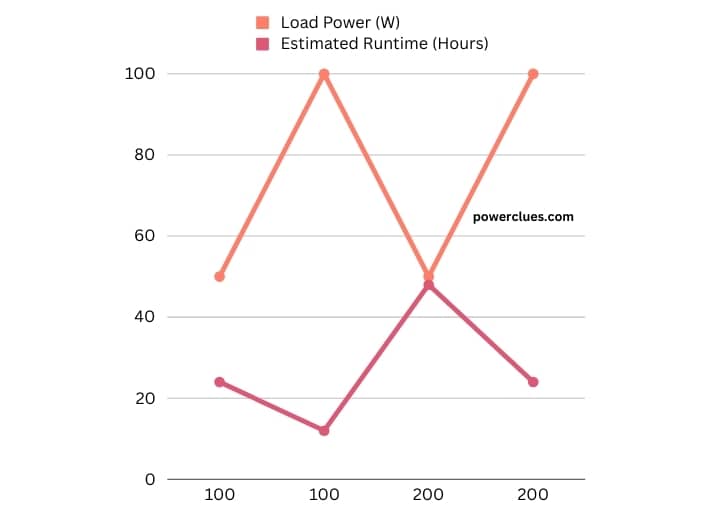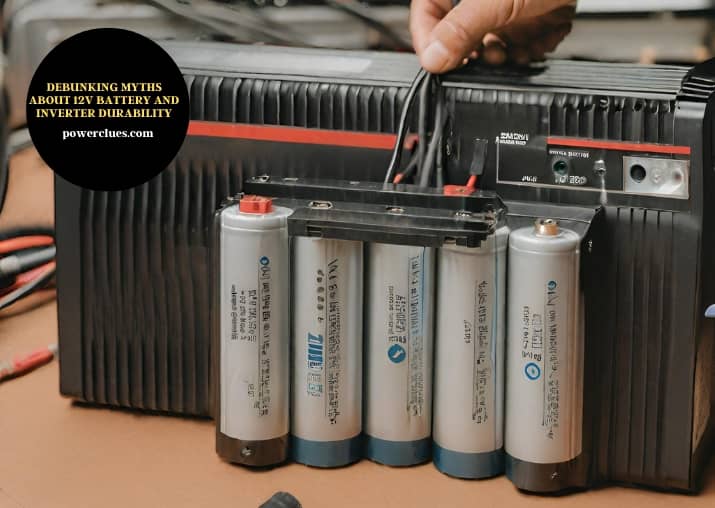How Long Will a 12v Battery Last With an Inverter?
The duration a 12V battery will last with an inverter depends on several factors, including the battery’s capacity and the power draw of the devices connected to the inverter. Typically, a fully charged 12V battery can power a moderate load for several hours before needing a recharge.
The key to maximizing the lifespan of a 12V battery when used with an inverter lies in understanding the interplay between battery capacity, measured in ampere-hours (Ah), and the power requirements of the connected devices, measured in watts. The battery’s capacity determines the amount of energy it can store, while the power draw dictates how quickly this stored energy is depleted. For instance, a 100Ah battery can theoretically power a 100-watt device for about 12 hours, assuming perfect efficiency.
In real-world scenarios, inverter efficiency and energy losses must be considered, which can reduce this runtime.
Environmental factors also play a significant role. Extreme temperatures, both hot and cold, can affect battery performance and longevity. Regular maintenance and proper charging practices are crucial for extending the life of the battery. Using a suitable charger and avoiding deep discharges help maintain battery health.
Choosing the right type of battery (AGM, Gel, Lithium-ion) based on the specific requirements of the application can significantly influence overall performance and durability.
Key Factors Affecting 12V Battery Life with Inverters
The lifespan of a 12V battery when paired with an inverter is influenced by several critical factors. Battery capacity, a primary determinant, dictates how long the battery can sustain power output before needing a recharge. Inverter efficiency plays a pivotal role; higher efficiency means less energy loss during the conversion from DC to AC, thereby extending battery life. Environmental conditions such as temperature and humidity also significantly impact battery performance and longevity.
Different types of batteries, like AGM or Lithium-ion, have varying lifespans and efficiencies. Lastly, the power draw of connected devices is crucial; higher loads drain the battery faster. Understanding these factors is essential for maximizing battery life in any application.
Calculating Battery Runtime with an Inverter
To estimate how long a 12V battery will last with an inverter, a specific formula is used. This calculation considers the battery’s capacity (in amp-hours) and the power draw of the connected devices (in watts). The formula is: Runtime (hours) = Battery Capacity (Ah) × 12 (V) / Load Power (W). This calculation, however, is an ideal estimate and does not account for inverter inefficiencies and other losses.
Example Runtime Calculations
| Battery Capacity (Ah) | Load Power (W) | Estimated Runtime (Hours) |
| 100 | 50 | 24 |
| 100 | 100 | 12 |
| 200 | 50 | 48 |
| 200 | 100 | 24 |

Optimizing Battery Performance for Longer Use
Enhancing the performance and lifespan of a 12V battery with an inverter involves several best practices. Regular maintenance of the battery ensures optimal health and performance. Adjusting inverter settings to match the power requirements can significantly reduce unnecessary power drain. Balancing the power load of connected devices prevents overstraining the battery. Regular testing and monitoring of the battery’s condition help in identifying and addressing issues early, thereby prolonging its life.
Debunking Myths About 12V Battery and Inverter Durability
There are several misconceptions about the durability of 12V batteries and inverters. One common myth is that inverters drastically reduce battery life, which is not always true, especially with modern, efficient inverters. Another misunderstanding is that all battery types offer similar performance, which overlooks the distinct characteristics of AGM, Lithium-ion, and other battery types. Clarifying these myths is crucial for proper usage and expectations.

Real-World Battery Usage Scenarios
Examining real-world examples provides valuable insights into the practical performance of 12V batteries with inverters. Different usage scenarios, such as camping, emergency power, or off-grid living, show varied battery life due to differing power demands and environmental conditions.
Battery Life in Different Scenarios
| Usage Scenario | Average Battery Life (Hours) |
| Camping (Light Use) | 48 |
| Emergency Power | 24 |
| Off-Grid Living | 72 |
FAQs
Impact of Inverter Size on Battery Life
Does the size of the inverter affect how long a 12V battery lasts? The size of the inverter can significantly influence the battery’s lifespan. Larger inverters often have higher standby power consumption, which can drain the battery more quickly, even when the load is minimal. Conversely, a smaller, more appropriately sized inverter for the load can optimize battery usage, reducing unnecessary power drain and extending battery life. It’s crucial to match the inverter size with your power needs to ensure efficient battery usage.
Will Disconnecting the Battery Affect the Crankshaft Sensor Reset Process?
Yes, disconnecting the battery will affect the process of resetting your crankshaft sensor. Disconnecting the battery will reset the engine management system, including the crankshaft sensor. It’s crucial to follow the manufacturer’s recommended reset procedure to ensure proper functioning of the sensor.
Could a Bad Instrument Cluster Drain the 12v Battery when Using an Inverter?
Yes, a bad instrument cluster could potentially drain the 12v battery when using an inverter. The instrument cluster is tied to various electrical systems in the vehicle, and a malfunctioning cluster could lead to excessive power draw, ultimately draining the battery.
Role of Battery Age in Performance
How does the age of a 12V battery impact its performance with an inverter? As a 12V battery ages, its capacity to hold a charge diminishes. This natural degradation means that older batteries will not last as long as new ones under the same conditions. The reduced capacity results from internal chemical changes and wear and tear from repeated charging and discharging cycles. Regular testing and monitoring can help gauge the health of an older battery and anticipate when replacement might be necessary.
Effect of Temperature on Battery and Inverter Efficiency
How does temperature affect a 12V battery’s duration with an inverter? Temperature plays a critical role in the performance of a 12V battery with an inverter. Extreme temperatures, both hot and cold, can significantly reduce battery efficiency and lifespan. Cold temperatures can slow down the chemical reactions within the battery, reducing its ability to provide power, while hot temperatures can accelerate battery degradation. Maintaining the battery and inverter in a temperature-controlled environment can help optimize their performance and longevity.
Influence of Charging Source on Battery Life
Does the source used to charge a 12V battery affect its lifespan with an inverter? The charging source can impact the overall health and lifespan of a 12V battery used with an inverter. Using a high-quality charger that correctly matches the battery type ensures that the battery is charged efficiently and safely. Overcharging or undercharging, often a result of using an incompatible charger, can lead to reduced battery life and performance. It’s essential to use the right charger to maintain battery health.
Battery Maintenance for Optimal Inverter Use
What maintenance practices extend the life of a 12V battery used with an inverter? Regular maintenance is key to maximizing the lifespan of a 12V battery used with an inverter. This includes keeping the battery clean and free of corrosion, ensuring tight and clean connections, and checking the electrolyte levels in lead-acid batteries. Also, storing the battery in a cool, dry place and avoiding deep discharges can significantly prolong its life. Periodic testing to assess the battery’s state of charge and health is also beneficial.
Choosing the Right Battery Type for Inverter Use
How does the type of 12V battery affect its duration with an inverter? The type of 12V battery (e.g., AGM, Gel, Lithium-ion) plays a crucial role in determining its efficiency and longevity with an inverter. AGM and Gel batteries are known for their durability and resistance to deep discharges, making them suitable for inverter use. Lithium-ion batteries, while more expensive, offer a higher energy density and longer lifespan. The right choice depends on the specific requirements of the application, including load size, discharge rate, and budget constraints.
Summary
Understanding the factors that affect the lifespan of a 12V battery with an inverter, knowing how to calculate its runtime, implementing optimization strategies, debunking common myths, and learning from real-world examples are essential for maximizing the efficiency and longevity of these power systems. This knowledge is invaluable for anyone relying on 12V batteries for their power needs.
